Ural basti, a village of Sonapur which is 42 k.m far away from Guwahati city in which the materialistic city life has not fully touched their simplicity.
The department of Social work, Assam Don Bosco University and University college Dublin volunteers Overseas (UCDVO), Ireland organised International student volunteer exchange programme of 2015 in Sonapur area of Guwahati Assam for one month(12th june-12th July); a twenty two member volunteer team including faculties have identified Ural basti and kachari basti(Sonapur) as the areas of intervention and aim at contributing towards the socio-economic development of the villagers and promote attitudinal changes among the members of the community towards life. The main objective was to enhance the development of marginalised and underprivileged communities through the community participatory development model and social Outreach programme. The major issues as per the identification are Alcoholism, drop out, drinking water, illiteracy, unemployment and religious politics is taking a crucial place in the community with the existence of Christianity and Hinduism and two major ethnic groups BODO and ADIVASI. Nowadays when people talks about only problems instead of constructive solutions, the step taken towards understanding reality and seeking for solution by department of social Work, ADBU and UCDVO is really appreciable and as a student of social work I am privileged to experience this programme.

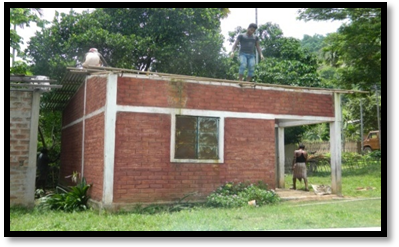
The basic amenity for the children like preschool is also not accessible in this village. The condition of the Aganwadis of the village discouraged the parents to send their children to Aganwadi. It is necessary that AWC is consolidated as the first village/ habitation post for health, nutrition and early learning centre or on which the Schemes like SABLA and IGMSY are also implemented. The ICDS Scheme does not provide fund for construction of AWC buildings except in the North Eastern (NE) states. But still the conditions of these aganwadis in this particular village are unexpected. Aganwadis are considered as the focal point for the delivery of services. This is one of the major factors why we picked up the Aganwadis for renovation in order make it a child friendly as it is the foundation of their educational journey of course for those who cannot afford the private sector. Both the primary schools are not functioning properly due to the availability of teachers. Lack of awareness and access to some public services has made their life tougher. The quality of life cannot be improved unless the basic facilities like water, sanitation, nutrition, hygiene and so on are not improved. Therefore the intervention was planned in such a way so that not even a single major issue left untouched.

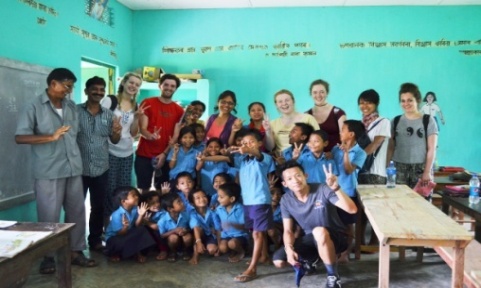
Apart from the renovation of Aganwadis, We conducted awareness programme and workshops on different issues health and hygiene, sanitation, the hand washing habit among the children, alcoholism and domestic violence, language impart classes for the school students. As the youths are very much unorganised and most of them are drop outs and therefore a career counselling session has been organised where they were informed about various sectors as per their interest and as well as the open universities especially for the drop outs. There are only one tube well, two wells and one stream on which the whole village depends for drinking water which is really unsafe and unhygienic. Though we could not contribute much towards it but we sensitised people on this issue and also approached village authority to take this to the higher level, because we do believe in people’s power and they are capable of bringing the change what they want to bring. Two more Event have been Organised as ‘Sports day’ and ‘community cultural event’ where we created a platform for the whole community towards the attainment of the goal of enriching their potentials and confidence building.
Livelihood is another major concern in this community. Livelihood is mere a basic need of food, shelter and clothing along with quality of life, education and good healthy life. Livelihood pattern of a family or a village very much depend upon the geographical areas and the resources available in around the community. As per the ‘participatory Rural Appraisal’ findings most of the community people are engaged in agriculture and daily wage labour in brick factories (two factories are there) and tea gardens. As today the whole world is talking about women empowerment and we do not know how far we have reached! But we emphasized on women for the livelihood training programme on Art and Craft keeping in mind the objective of Sustainable Development. During this one month of participatory Development project as a team we were involved in multitasking and trying to touch the larger objectives of community organisation and Social work accordingly in bringing co-operative and collaborative attitude among the community people and help people to help them.
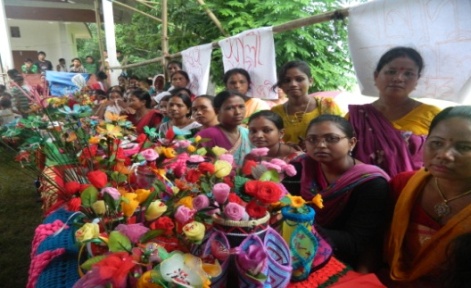
Every one of us should work hard, prosper and succeed through innovation and hard work and once successful, we should give something back to society which has made us or cable of doing so. It’s an appeal to all the young students irrespective of any stream give your hands to those who have been struggling to fulfil the basic needs of life. If we will walk together a path will emerge and we will make our own path. Do not depend too much on God and Government believe in Yourselves and be great at what you do, and this way all of us can contribute towards a greater Assam, greater India and of course a greater world.
- 7954 reads



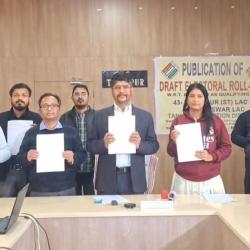
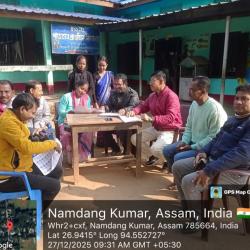
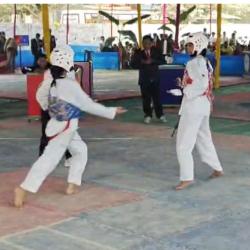
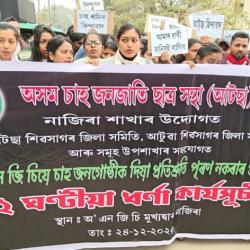
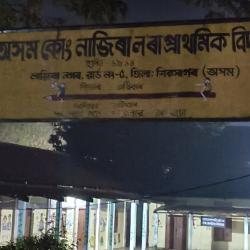
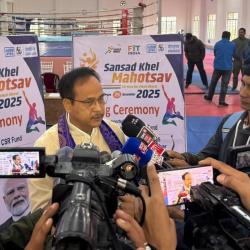

Add new comment